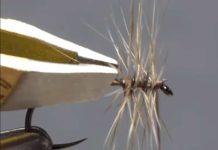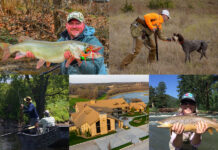’Tis summertime, and like it or not, snakes are out.
Last year, several news organizations reported an increase in the number of venomous snake bites in North Carolina. Rapid urbanization and higher-than-normal amounts of rain were blamed for the spike in bites, especially since they were occurring more frequently in suburban areas.
The copperhead is among four venomous snakes, including rattlesnakes, cottonmouths and coral snakes, that people should watch for while walking. Their pattern blends well with fallen leaves and debris on the ground.
People can encounter snakes while walking trails, camping or just doing summer yard work around the house. The best way to avoid snake bites is to watch where you step or reach and to keep your distance if you see one.
Because snakes are cold-blooded, they prefer sun and / or stretching out on warm surfaces like rocks, pavement and other heat-absorbing materials when temperatures are cooler. But in the heat of the summer, they prefer shade, especially from the midday sun.
Oddly, venomous snakes typically do not want to use their venom as a defense. They usually give warnings like rattlesnakes rattling before they strike. Half the reported bites by venomous snakes have no venom injected into the victim. A snake strikes because it views you as a threat. Producing venom is an energetically costly process, and they only have so much. If they use it, they must make more to hunt for food, and they have to work for every single meal, so striking to defend themselves is something they would rather avoid.
To avoid snake bites, people should consider their location and be cautiously aware of where they step or reach, such as picking up a log for firewood. Be careful when moving debris and other items that snakes might use for cover. Use tools like a shovel or the tip of a boot. Teach children not to reach inside crevices and under bushes with low-hanging limbs.
Most snake bites to humans occur to the feet / lower leg or the hands. Despite common misconceptions on how to deal with a venomous snake bite, it’s best to stay calm and get to a hospital as quickly as possible. The pain is usually intense.
First, try to identify the snake species. This is especially important for coral snakes — a species we do have in North Carolina — because the treatments differ significantly from those to treat copperhead, cottonmouth or rattlesnake bites.
Do not try to kill it. The emergency room doctors don’t need it. They just need a decent description of the snake or a photo of it taken with your phone if it was safe to do so. If someone else tries to get the snake, the doctor may be dealing with two snake bite victims.
The victim should remove clothing like socks, if bitten on the foot, and rings on fingers, if bitten on the hand, because of swelling. Tourniquets and suction devices or using other mythologized methods to remove snake venom could do more harm than good. Hospitals have anti-venom on hand to deal with bites. Just focus on getting to the hospital quickly but safely.
NEW LAW PENDING: As you may know, the Senate voted 73-25 to pass a historic public lands package, the Great American Outdoors Act, which would set aside hundreds of millions of dollars each year for conservation efforts.
Joel Johnston is an attorney at a national office. As an environmental and regulatory attorney and avid outdoorsman (he loves fly fishing), he’s been following this bill closely both professionally and personally.
Of the passage he says:
“Election year politics can be fascinating to watch, and this legislation is a fabulous example of great bipartisan lawmaking. I’m not sure whether I am a fly fisherman first, or an attorney, but as someone who routinely uses the very public lands that stand to benefit from this legislation, I, like many others, have watched the backlog of maintenance projects at park facilities grow. With this new legislation, not only will new lands and trails be acquired, but a wide range of facilities will benefit, with corresponding benefits to a wide range of outdoor users, not to mention the ultimate benefits of conserving our natural spaces. I expect to see this make it easily through the House, and President Trump has stated he supports the legislation and expects to sign it.”
Glenn Ayers is director of the Lansdowne Plantation Wildlife Habitat and outdoors columnist for the Times-News. Phone: 540-297-7465. Email: gma57@netzero.net
Credit: Source link































